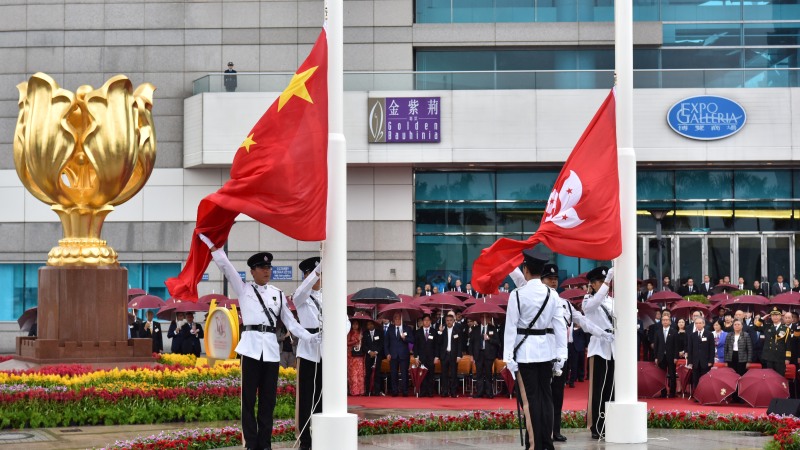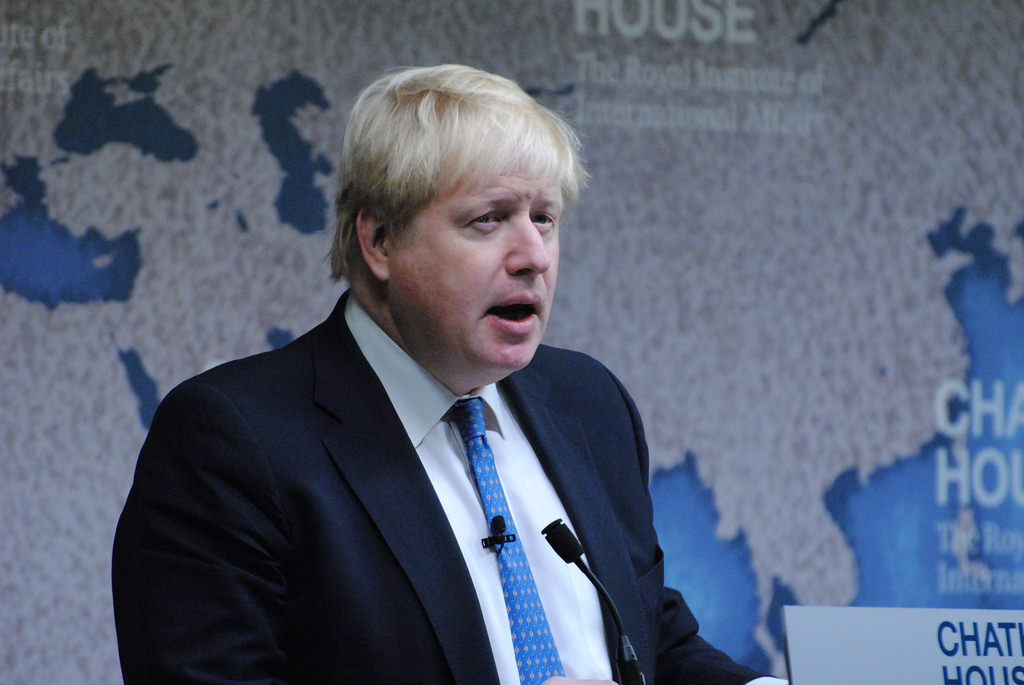Irish Foreign Minister Simon Coveney on Wednesday said the arrangement linking Hong Kong with China could be a possible solution for addressing the fate of Northern Ireland after Brexit.
The border between EU member Ireland and British-ruled Northern Ireland is becoming an increasing concern in divorce talks with Britain, with Dublin demanding that the frontier remain completely open, or risk endangering the peace process.

Ireland fears that any divergence of Northern Ireland from EU law will automatically require the creation of cross-border controls, hitting the economy and reviving memories of when military checkpoints split the island.
“Britain … must take on their responsiblity to Northern Ireland … and we will try to help them design that in a way that is fair to both communities,” Coveney told reporters while on a visit to a community centre in the Northern Ireland city of Belfast.
“This isn’t entirely new by the way, there are other parts of the world whereby one country has difficult jurisdictions in terms of customs arrangements and trading arrangements,” Coveney added.
“Hong Kong is an example of that. I think there is probably no country in the world that defends its sovereign borders more aggressively than China does,” he said.
“Yet China lives with (and) functions with Hong Kong which has very much been part of Chinese territories, but operating under a different set of rules,” he said.
“I’m not sure whether the Hong Kong solution is appropriate, for Northern Ireland or not, but it is an example, of ironically a British-designed solution,” he added.

Britain — the former colonial power in both Hong Kong and Ireland — handed Hong Kong back to China in 1997.
Since then Hong Kong has been governed under a “one country, two systems” deal which allows citizens rights unseen on the mainland, including a partially directly elected parliament.
‘Unthinkable’
The EU has given Britain until early December to make sufficient progress on three key Brexit divorce issues — Northern Ireland, its exit bill and the rights of EU citizens living in Britain — in order to move on to trade talks at a summit on December 14.
Coveney stressed that a solution to the Ireland problem was not only about protecting the Irish economy, but preserving a peace process that many in Dublin fear is being taken for granted.
“We are not in the business of building new barriers on the island of Ireland ever again,” Coveney said.
“What is at stake here, is not simply potential barriers of trade although that is a big concern, but it is also the potential destabilisation (of) a very delicate and quite fragile peace process,” he said.
This view was echoed by his British counterpart Boris Johnson in UK parliament on Tuesday.

A return to a hard border, “would be unthinkable, it would be economic and political madness. Everybody understands the social, political and spiritual ramifications,” he added.
But, in opposition to the Ireland and EU position, Johnson insisted that the solution to these problems would be properly addressed in the second phase of talks.
